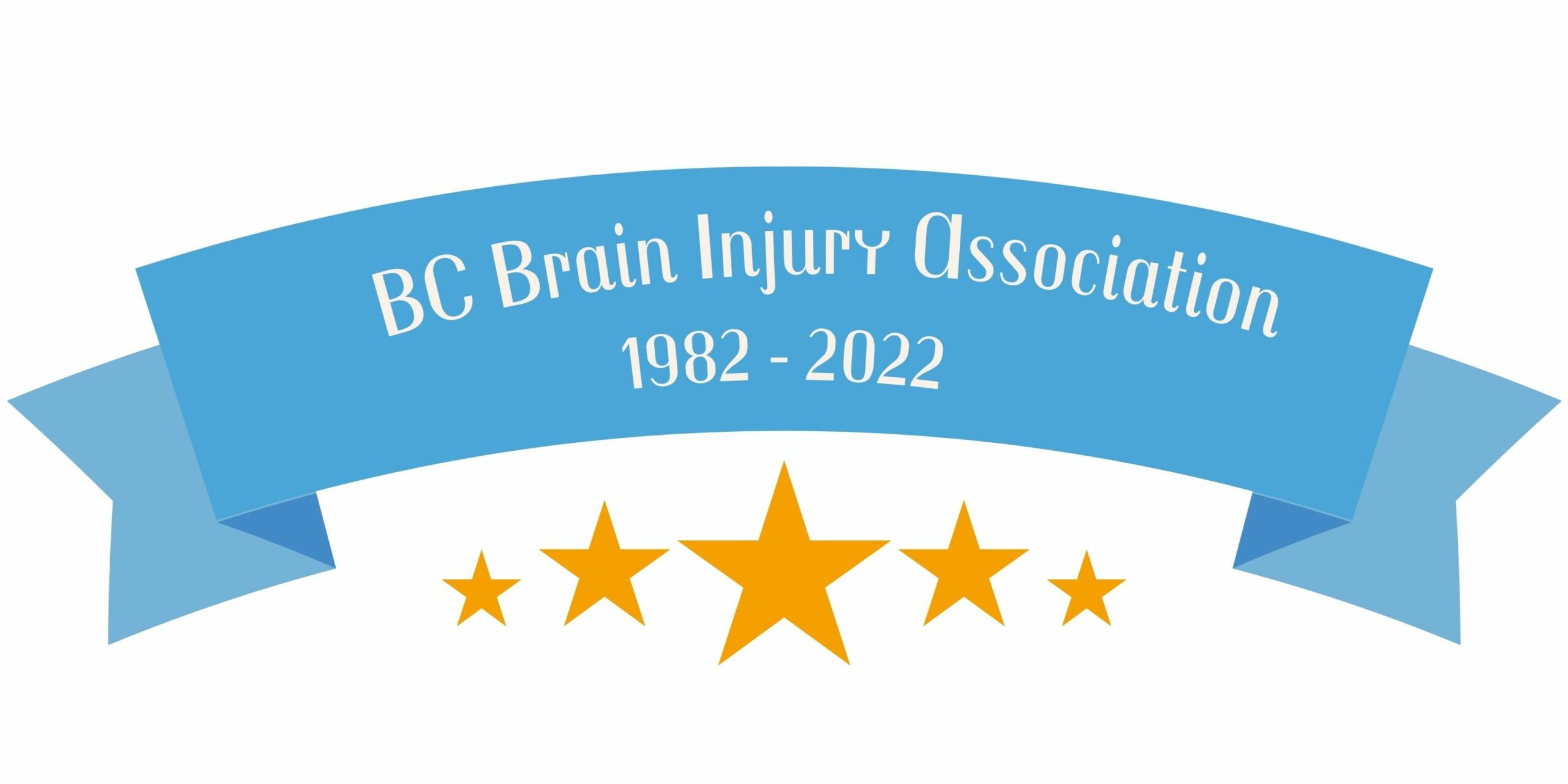Have you been injured in a crash and think you might have a concussion or brain injury? Are you wondering what to do next?
ICBC recognizes that receiving medical treatment as soon as practically possible is critically important in these cases. They have therefore improved Accident Benefits, as well as changed the insurance process to ensure their top priority — you, their customer — get the care and support needed.
Effective April 1st, 2019: Find all of the changes to the ICBC Accident Benefits coverage by clicking the link.
If you are a BC resident and were injured in a car crash after April 1st, 2019, this second blog post in our series describes everything you need to know about the process of being diagnosed and beginning treatment. It answers FAQs like:
- Who will diagnose and treat my injury?
- Have there been changes to treatment options available to me?
- How can I stay on top of my treatment?
- Who else can I turn to for help?
Click on the plus symbols beside the questions below to learn more about each topic.
BC Brain Injury Association (BCBIA), a non-profit provincial organization in BC committed to improving the lives of people who live with acquire brain injury, recognizes that these changes will impact a significant number of people. We also know the claims process can be challenging to navigate. We can help. Having the right knowledge can make the difference in your claims process to ensure you receive all of the care and support — when you need it most.
We have created a series of blog posts with user-friendly language to describe these changes. Our goal is to help individuals, especially ABI survivors and their supporters, navigate the new system.
This second post answers some of the questions you might have in the early days after the accident.
Future posts will focus on additional different stages of the process, including the middle of the process where treatment is taking place, and the end of the process where settlements are occurring.

After you first report your crash, if you are injured, a Customer Claim Specialist (CCS) will be assigned to you. ICBC representatives are available to answer your questions and guide you through your claim from start to finish.
Your CCS will contact you within 48 business hours of when you reported your crash to ICBC. During that time, you are welcome to call the ICBC contact centre for additional claim information. After your initial call with the Customer Claim Specialist, they will send you a checklist of next steps, the ICBC Recovery and Treatment Payment Guide, and two important forms to fill out – one is the Claim application and the other is the Direct Deposit application.
At this stage, you and your healthcare providers will design a treatment plan with the goal of returning your functional abilities and returning you to pre-accident functional status. The CCS will use the healthcare provider-approved goals to help inform decisions about whether treatment is necessary, reasonable and likely to promote rehabilitation.
In some cases, a Customer Recovery Specialist (CRS) may be assigned to provide additional recovery support. CRSs are part of a newly established Customer Recovery Services department. This team of experienced and knowledgeable specialists will work with customers and their medical providers to support the recovery of customers who are disabled or catastrophically injured following a crash. There are also other discretionary factors which may result in a CRS being assigned. See the next section, “What if my situation is complex?” for more information about the CRS role.
We will refer to both of these support specialists as your “Claim Representative(s)” in this article.

A Customer Recovery Specialist (CRS) may be assigned to provide additional recovery support in cases with complex files, including crash survivors with brain injuries. The role of the CRS is to help guide you on your road to recovery by using their understanding of injuries and available resources to support you through your treatment plan by providing advice regarding what services are available and what may be funded. A CRS will not make suggestions or recommendations regarding your treatment plan, but will rather help ensure you are accessing the benefits you are entitled to.
CRS’s are educated in health sciences (e.g., Kinesiology, Occupational Therapy, Physical Therapy, etc.). Within the Customer Recovery Services department there exists professional experience in social work, customer recovery, disability management, and vocational rehabilitation.
Their role is to handle and process applications for approval or extensions from your doctor or other healthcare providers. In situations where an application or extension is denied, a process exists for escalating the request to the Manager level.
Decisions regarding funding treatment outside the pre-approved sessions are based on the guiding principle of what is necessary and reasonable treatment in order to promote rehabilitation and help you return to pre-accident status. Many factors are taken into consideration when making that determination, including, but not necessarily limited to: nature of the injury(ies), customer profile, history and additional conditions, attempted interventions to-date, success rate, and prognosis. Your CRS may need to consult with others (e.g., healthcare providers or employers) in order to obtain enough information to paint the complete picture needed to most effectively support your treatment plan.
 ICBC will not diagnose your injury. Your doctor or healthcare practitioner must diagnose your injury, and together with your functional capacity, the diagnosis will help ICBC determine whether or not your injuries fall within the minor injury definition. Doctors or healthcare practitioners can update a diagnosis at any time.
ICBC will not diagnose your injury. Your doctor or healthcare practitioner must diagnose your injury, and together with your functional capacity, the diagnosis will help ICBC determine whether or not your injuries fall within the minor injury definition. Doctors or healthcare practitioners can update a diagnosis at any time.
Government-dictated treatment guidelines for examination, assessment, diagnosis and treatment of minor injuries have been developed through consultation with the medical community. These guidelines, informed by healthcare professionals, provide direction for healthcare providers to ensure current best practices in healthcare. These guidelines help to ensure more consistent care and support for people who are injured in a crash.
They have been carefully drafted to ensure the appropriate degree of practitioner autonomy and clinical judgement is maintained when treating patients. The regulations also allow room for the protocols to evolve as new medical evidence is available, to ensure they remain relevant in supporting recovery. The treatment guidelines are published in the Minor Injury Regulation[1] and are intended to be followed by healthcare practitioners.
While ICBC wants to ensure continuity of care where possible, you may change your medical provider at any point during the recovery process.
[1] Insurance (Vehicle) Act. R.S.B.C. 1996, c.231. Minor Injury Regulation, 234/2018 amended by 60/2019 (effective April 1, 2019), pg. 20-21. http://www.bclaws.ca/civix/document/id/oic/oic_cur/0595_2018
ICBC’s minor injury definition includes sprains, strains, general aches and pains, cuts, bruises, road rash, minor whiplash, temporomandibular joint disorder (TMJ) – pain in your jaw joint and in the muscles that control jaw movement, as well as Short term changes related to concussions and mental health conditions.
If your injury meets the definition of a minor injury, this will only impact the general damages portion of your claim settlement. General damages is the term for payments received to compensate you for such things as pain and suffering and the inability to perform certain activities. This is one component that makes up a claim settlement.
Whether or not an injury falls within the minor injury definition does not impact your entitlement to the $300,000 Accident Benefits coverage available for medical care and treatment.
[1] Insurance (Vehicle) Act. R.S.B.C. 1996, c.231. Minor Injury Regulation, 234/2018 amended by 60/2019 (effective April 1, 2019), pg. 14. http://www.bclaws.ca/civix/document/id/oic/oic_cur/0595_2018
 ICBC considers a concussion to fall within the minor injury definition when it does not result in an incapacity beyond 16 weeks after the initial symptoms. Incapacity[1] refers to your ability to perform the activities of daily living, which include but aren’t limited to: going to work or school, preparing your own meals, driving or taking transit, managing personal finances, performing personal hygiene, and managing personal medication.
ICBC considers a concussion to fall within the minor injury definition when it does not result in an incapacity beyond 16 weeks after the initial symptoms. Incapacity[1] refers to your ability to perform the activities of daily living, which include but aren’t limited to: going to work or school, preparing your own meals, driving or taking transit, managing personal finances, performing personal hygiene, and managing personal medication.
If your concussion or brain injury impacts your life for more than 16 weeks [e.g., you’re still not able to go to work or school, you have to significantly modify your work hours or duties, or you’re unable to care for yourself] it will no longer be considered to fall within the definition and the limit on pain and suffering will not apply.
Whether or not your concussion falls within the definition, it does not change your entitlement to the $300,000 Accident Benefits coverage available for medical care and treatment.
[1] Insurance (Vehicle) Act. R.S.B.C. 1996, c.231. Minor Injury Regulation, 234/2018 amended by 60/2019 (effective April 1, 2019), pg. 14. http://www.bclaws.ca/civix/document/id/oic/oic_cur/0595_2018

When you are injured in a crash, you have access to certain pre-authorized treatments, and your healthcare practitioner will work with you to put a treatment plan in place. We encourage you to work with your Claim Representative to identify what Accident Benefits are included in your Basic insurance to support your recovery. Accident Benefits are available for all British Columbians injured in a crash, no matter who is responsible or at fault.
Decisions regarding funding treatment outside the pre-approved sessions are based on the guiding principle of what is necessary and reasonable treatment in order to promote rehabilitation and help you return to pre-accident status. Many factors are taken into consideration when making that determination, including, but not necessarily limited to: nature of the injury(ies), customer profile, history and additional conditions, attempted interventions to-date, success rate, and prognosis.
Pre-Approved Treatments
Yes. ICBC now covers more types of pre-approved treatments, including: physiotherapy, chiropractic, massage therapy (RMT), kinesiology/active rehab, psychological counselling, clinical counselling and acupuncture. You can seek care from these healthcare practitioners for pre-approved numbers of treatments within the first 12 weeks following a crash without a written referral from a doctor.
Choosing Your Healthcare Practitioner
ICBC does not currently have an approved, or preferred healthcare provider list. This allows you the flexibility of choosing your own healthcare practitioner. While ICBC wants to ensure continuity of care as much as possible, you may change your medical provider at any point during the recovery process.
There also exists special training programs for healthcare professionals to manage concussion recovery. You can find a list of the concussion management programs and certified professionals in Brainstreams’ online list of services.
Fee Increase
Fees for pre-approved treatments that occur after April 1st, 2019 are now set at the fair market rate. Pre-approved treatments include: physiotherapy, chiropractic, massage therapy (RMT), kinesiology/active rehab, psychological counselling, clinical counselling and acupuncture. The updated fee increase is applicable to all claims regardless of when the accident occurred, and regardless of fault. This means that in most cases, crash survivors will not be out of pocket for treatment costs.
Please note: Customers who seek treatment from healthcare practitioners who charge more than the regulated fees will not be able to recover their out of pocket expenses from ICBC. If you have extended or private health plan coverage, you can apply for reimbursement through your plan to cover excess cost of treatment sessions. See the ICBC Recovery and Treatment Payment Guide for information about submitting your receipts.
Ongoing Treatment
If you require ongoing treatment beyond 12 weeks after a crash, you or your healthcare practitioner may contact the Claim Representative. In most cases, a doctor’s note is not required in advance of the approval for more treatment. To prevent gaps in the treatment plans, your healthcare practitioner can also request approval for additional treatments from the Claim Representative using a web-based application.
 Additional treatments include extending those covered under the pre-approved sessions and other types of treatments (e.g. speech language pathology, osteopathy, driving assessment, or clinical pilates to name only a few).
Additional treatments include extending those covered under the pre-approved sessions and other types of treatments (e.g. speech language pathology, osteopathy, driving assessment, or clinical pilates to name only a few).
A Customer Recovery Specialist (CRS) may be assigned to provide additional recovery support in cases with complex files, including crash survivors with brain injuries. The role of the CRS is to help guide you on your road to recovery by using their understanding of injuries and available resources to support you through your treatment plan by providing advice regarding what services are available and what may be funded. A CRS will not make suggestions or recommendations regarding your treatment plan, but will rather help ensure you are accessing the benefits you are entitled to.
CRS’s are educated in health sciences (e.g., Kinesiology, Occupational Therapy, Physical Therapy, etc.). Within the Customer Recovery Services department there exists professional experience in social work, customer recovery, disability management, and vocational rehabilitation.
Their role is to handle and process applications for approval or extensions from your doctor or other healthcare providers. In situations where an application or extension is denied, a process exists for escalating the request to the Manager level.
Decisions regarding funding treatment outside the pre-approved sessions are based on the guiding principle of what is necessary and reasonable treatment in order to promote rehabilitation and help you return to pre-accident status. Many factors are taken into consideration when making that determination, including, but not necessarily limited to: nature of the injury(ies), customer profile, history and additional conditions, attempted interventions to-date, success rate, and prognosis. Your CRS may need to consult with others (e.g., healthcare providers or employers) in order to obtain enough information to paint the complete picture needed to most effectively support your treatment plan.
Please note:
Some treatment providers choose not to bill ICBC directly and may ask that you cover treatment costs and seek reimbursement by ICBC. ICBC will pay up to the established rates for treatments. However, expenses must be submitted to the Claim Representative within 60 days of the treatment date that the expense was incurred.

Keep a private journal. Keeping a private log to record symptoms (physical, cognitive, emotional, social) as well as how those symptoms are impacting your day-to-day life in a very real, practical way, can help inform the diagnosis, treatment and recovery plan as long as you share it with your healthcare practitioners.
Communicate regularly with your Claim Representative. Update them on your treatment progress, changes in diagnosis or symptoms, and any recommendations from your healthcare team. It is helpful to describe your engagement with your recovery process and demonstrate meaningful benefits resulting from the treatments they approve, as demonstrating progress can positively impact the likelihood of ICBC approving additional treatments. It can also be helpful to describe the impact and implications of not receiving treatment.
Regular and key communication between all parties is critical. Having as much information as possible assists ICBC in making timely and informed coverage decisions.
Ask your healthcare practitioners to share their recorded findings, treatment recommendations, and instructions. Keep this information for your own records and share it among all members of your healthcare team. You can also request that your healthcare team communicate to you and your Claim Representative regarding treatment goals and progress. Open communication is helpful to coordinate your recovery, streamline diverse recommendations, and to ensure continuity in your care. Providing your consent for your healthcare providers and ICBC to share information enhances their ability to oversee your care.
Educate yourself about concussion and brain injury.
- Look for resources that provide advice, strategies and tools that can support your recovery. There are good resources available that can help you manage the common symptoms of brain injury such as sleep and physical problems, emotional issues, and thinking and cognitive challenges.
- Contact the Brain Injury Organization in your local area. They will be familiar with services in your community and are an excellent source of support and advice.
- Seek out support groups to learn from others and share experiences.
- Read stories and watch videos of survivors sharing their recovery journeys.
- Always ask the person treating you, “Is there anything else I can be doing that could help my recovery?” and “Is there anything I should definitely NOT do?”
 If you’ve been injured in a crash, you may be wondering whether you can, or should get a lawyer to help you with your claim. Given the recent changes to ICBC insurance, please ensure you read all the information available carefully. However, whether or not you retain a lawyer is entirely your choice. Consider time, cost and the complexity of your claim before hiring a lawyer for legal advice or to represent you in a claim.
If you’ve been injured in a crash, you may be wondering whether you can, or should get a lawyer to help you with your claim. Given the recent changes to ICBC insurance, please ensure you read all the information available carefully. However, whether or not you retain a lawyer is entirely your choice. Consider time, cost and the complexity of your claim before hiring a lawyer for legal advice or to represent you in a claim.
 In British Columbia, individuals who suffer injury because of someone else’s fault may be entitled to compensation. If choosing to seek legal advice, it is important that you seek a qualified legal professional experienced in representing brain injury survivors. Lawyers who specialize in brain injury cases have the knowledge to assist with accessing funding for the necessary private professional services, life-long care, and compensation for lost income and/or earning capacity.
In British Columbia, individuals who suffer injury because of someone else’s fault may be entitled to compensation. If choosing to seek legal advice, it is important that you seek a qualified legal professional experienced in representing brain injury survivors. Lawyers who specialize in brain injury cases have the knowledge to assist with accessing funding for the necessary private professional services, life-long care, and compensation for lost income and/or earning capacity.
Brainstreams has developed some questions designed to help select legal counsel that specialize in brain injury work.
Legal counsel can assist with disputes and advocates can also provide you with more information and guidance during your recovery journey.
 Sometimes it can be a challenge to understand all the different insurance and government plans, navigate your way through the system, and handle all of the information being thrown at you. You might want to consider including a friend, family member or disability advocate to be present for meetings and appointments with healthcare professionals. There are a variety of advocacy resources that offer help in BC.
Sometimes it can be a challenge to understand all the different insurance and government plans, navigate your way through the system, and handle all of the information being thrown at you. You might want to consider including a friend, family member or disability advocate to be present for meetings and appointments with healthcare professionals. There are a variety of advocacy resources that offer help in BC.
Searching for services to support recovery from a brain injury can be overwhelming. We’ve created an online list of resources to help you access the support you need. Find our comprehensive list of 300+ services by clicking on the Resources menu item on the Brainstreams website.
The simplest way to find services close to you is by entering your postal code. You can also navigate this list a number of ways by:
1. Clicking on each of the categories to see the services they include.
2. Entering a keyword.
3. Entering the specific service name.
We also strongly recommend connecting with your local Brain Injury Organization. They will be most familiar with the range of services available in your community and are an excellent source of support, advice and help in navigating the system.

Your feedback and questions are important to us! Has this been an informative read? Are they any questions you would like to see answered that may help others navigate the new changes as well? Please leave a comment through our contact form!
If you are a crash survivor navigating the new ICBC process, please take some time to complete our survey that will be coming out shortly as we work towards providing you with the best source of information possible.
- Make sure you review ICBC’s website in addition to this post. It includes information about why the changes have been made, and covers a host of topics ranging from changes in benefits to a more detailed description of the claims process. You can also find more detail in the Q & A for Health Care Providers and Q & A for Health Partners.
- If your crash was prior to April 1st, 2019, please talk to your Claim Representative. The changes to insurancethat came into effect on April 1st, 2019 may affect your coverage.
- Please use our Contact form to share your thoughts with us about the changes to insurance and their implications.
- Sign up for our newsletter to receive the online survey we will be sending out in the near future. We want to collect meaningful stories that reflect survivors’ experiences in navigating the new ICBC claims process.
Coming soon…in our next post we’ll describe a scenario where recovery isn’t going as planned and what some of the options are.
A future, final post will touch on the final stages of the process when you might be looking at a settlement.









